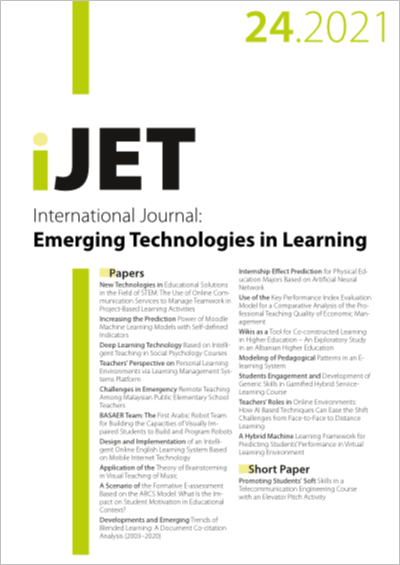Use of the Key Performance Index Evaluation Model for a Comparative Analysis of the Professional Teaching Quality of Economic Management
DOI:
https://doi.org/10.3991/ijet.v16i24.27869Abstract
The key performance index (KPI) evaluation provides a guarantee for discipline construction, talent training, and research development and planning in colleges. Based on KPI evaluation model, this paper compares the professional teaching quality of economic management of different types of colleges, different teaching models, and different disciplines, through KPI appraisal. The results show that: teaching quality can be evaluated by several important indices, namely, teaching attitude, teaching content, teaching method, and teaching effect; the most important indices are teaching attitude and teaching content, followed by teaching effect and teaching method. The index scores of professional education mode were much higher than those of general education mode. Teaching effect is the highest rated index among students of accounting, and teaching attitude is the highest rated index among students of business administration. The research results lay the theoretical basis for colleges to improve KPI appraisal system and appraisal supervision system.
Downloads
Published
2021-12-21
How to Cite
Chang, X. (2021). Use of the Key Performance Index Evaluation Model for a Comparative Analysis of the Professional Teaching Quality of Economic Management. International Journal of Emerging Technologies in Learning (iJET), 16(24), pp. 177–190. https://doi.org/10.3991/ijet.v16i24.27869
Issue
Section
Papers
License
Copyright (c) 2021 Xiangpeng Chang

This work is licensed under a Creative Commons Attribution 4.0 International License.



